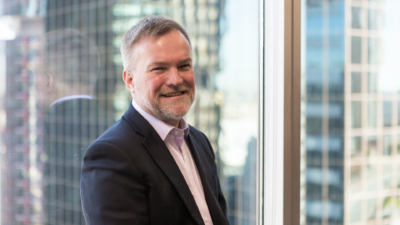‘Let’s not lock ourselves into one corner’: Institutions moving fast on portfolio changes
A more uncertain investment environment is accelerating the pace at which some institutional investors make changes to asset allocation, according to Nuveen’s 2024 EQuilibrium survey, though others feel that the unfamiliar road they’re travelling means they should take their foot off the gas.
Around 37 per cent of the 800 respondents – which manage a collective $18 trillion of assets – are accelerating the pace of asset allocation changes, though 45 per cent are slowing change or “putting on the brakes”. Another eight per cent have “analysis paralysis” (hesitation or no change).
“If you decide that it is time to de-risk, you really want to execute that decision more quickly,” a senior investment analyst from an Australian super fund told the survey. “So we’re moving towards this increased pressure on rapid execution of dynamic trades.”
At the same time, almost half of respondents are improving tactical and strategic flexibility through “more nimble decision making”, while others are moving beyond volatility as their primary measure of risk and adjusting global and regional allocations to address investment biases.
“It’s about how best to de-risk because de-risking just doesn’t mean going into bonds or hedging inflation risk away completely. It’s being nimble. We are being ready for multiple paths that the world could take — almost taking six months at a time and adapting and reacting. When I talk to my fellow CIOs, that seems to be more and more in favour,” said the CIO of a UK public pension.
“Let’s not lock ourselves into one corner, find we’ve taken a wrong decision, and then it becomes too expensive to unwind.”
Around 43 per cent of respondents are using risk mitigation overlays to build a more resilient portfolio, while 37 per cent are undertaking granular analysis of correlations that might otherwise go unnoticed and 26 per cent are incorporating “non-traditional” beta, and factors like value, momentum, and carry.
All of that’s come about because institutional investors are facing “higher than normal” uncertainty – as measured in the survey by questions around geopolitics, capital markets, economic growth, and monetary and fiscal policy – with 93 per cent of respondents receiving an “uncertainty score” above the normal level of 50.
“I’ve been in the investment industry for 18 years so I’ve seen a number of ruptures during that time when market confidence has been disrupted,” said a senior investment officer for a UK insurer. “I feel like it’s palpable at the moment. There are just so many issues and geopolitical areas all with the potential, by themselves, to cause some significant global disruption.”
Risk on/risk off
Meanwhile, 44 per cent of pension respondents are planning to reduce equity exposure in 2024, while only 26 want to increase it. It’s highly unlikely that result is the same for the super fund segment in isolation, given their whirlwind love affair with risk assets, but the survey also tracks soaring interest in private credit and private equity that’s more to the taste of Australia’s homegrown institutional investors.
One in four pensions are making “foundational” changes to asset allocation, increasing allocations to alternatives, while private real estate has experienced a slowdown in allocations.
“Over the last 10 years, everything was so well behaved,” said a UK pension CIO. “Inflation was low, growth was neither too hot nor too weak, there were no concerns around China and there was no such thing as net zero. It was all about efficiency of supply chain, not resiliency.
“Now all those things have been turned on their head. Everything that was looking good in terms of consideration now has a question mark. So it makes our life quite difficult, in terms of how we bring it all together.”











